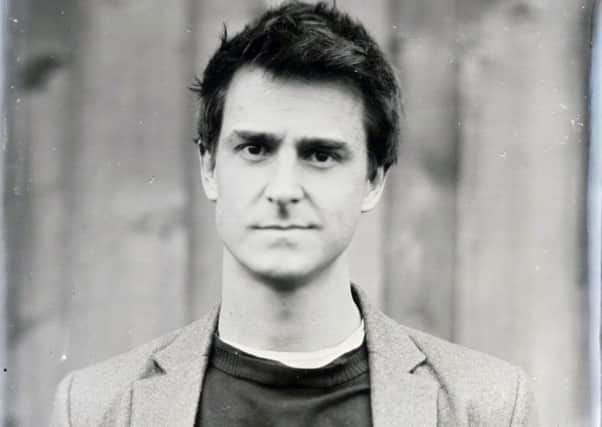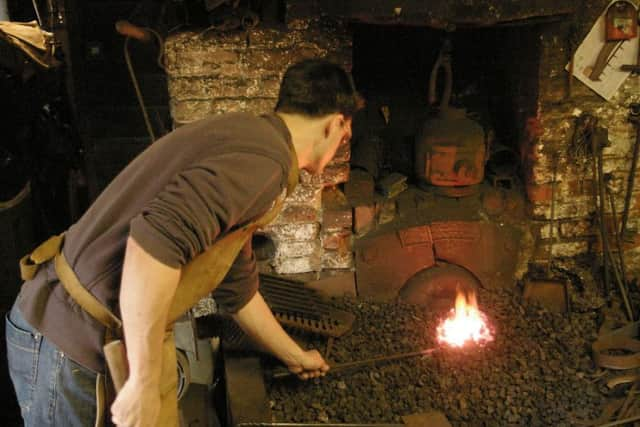Is there a future after the Apocalypse?


If the worst happened and the world as we know it was devastated by a major catastrophe - think global supervirus, asteroid strike, nuclear holocaust or cataclysmic climate change event, or even an invasion of blood-sucking zombie mutants - would you know how to survive?
Once you had scavenged what you could, could you grow food, generate power, prepare medicines or get metal out of rocks? Could you help the human race adapt and thrive? Could you play a part in “rebooting” civilization?
Advertisement
Hide AdAdvertisement
Hide AdIf you follow the advice of award-winning author and academic Lewis Dartnell, perhaps you could.


The astrobiologist has written a handbook describing how you might set about the task, including detailed instructions on everything from fashioning basic tools to making glass and converting your vehicle to run on wood.
He even shows how to modify a Kindle to create a solar-powered digital library containing a back-up copy of the manual, not to mention explaining the basics of manufacturing paper, ink and a rudimentary printing press so you can mass-produce it ad infinitum after the end of days.
He reckons his guide could help survivors avoid a repeat of the Dark Ages by revealing shortcuts that would act like a fast-forward button for the ages of man.
Dartnell, whose day job is in research at the University of Kent, is presenting his theories in a special stage show and interactive exhibition as part of this year’s Edinburgh International Science Festival, which starts next weekend.


Figure-hugging leather, big guns and souped-up dragsters à la Mad Max are optional, but audiences can see up close some of his homemade gadgets and gizmos as well videos demonstrating important techniques for speeding up progress. There may even be an airing of the eminently useful ‘How to start fire with Ikea products’.
“The book is a thought experiment about what you could do if civilization collapsed due to some kind of apocalypse,” he said.
“We’ve all read the books and seen the films, but imagine if that actually happened for real - what kind of science and technology would be most useful, not just to keep you alive in the immediate aftermath, but how could you go about rebooting civilization in the same way as you might reboot a computer if it crashed?
Advertisement
Hide AdAdvertisement
Hide Ad“How could you accelerate history for the second time around and relearn all the knowledge we’ve worked out through history.
“I explain how you could leapfrog over some of the intermediate technologies. If you have a book in your hand that tells you the most useful quick-start technology you can skip some of the development phases.”
But he admits the armageddon hook is just a bit of fun - the book is really an exploration of technological advancement through the ages and how civilization could be quickly recreated by using current knowledge to leapfrog certain stages in our advancement.
“We don’t have to reinvent the wheel,” he said.
“The book is a thought experiment about what you could do if civilisation collapsed due to some kind of apocalypse.
“It’s not really about the end of the world. It’s about the notion of the apocalypse and the loss of everything we take for granted in our modern lives.
“Imagine if that wasn’t there any more. How could you do it yourself?
“A lot of us have lost these basic skills of making and doing things, which maybe our grandparents had. The book goes behind the scenes of how our modern world works and explains it. It’s like a history of science and technology.”
Amanda Tyndall, creative director of the Edinburgh International Science Festival, said: “Our 2016 programme is considering how we can build better worlds.
Advertisement
Hide AdAdvertisement
Hide Ad“Dr Dartnell’s event offers an interesting take on the situation if we were to need to do so from scratch and is a highlight of our Planetary Perspective strand, which is supported by Greener Scotland.”
The festival runs at various venues across the capital from 26 March to 10 April. The Knowledge is at Summerhall arts hub on 2 April.